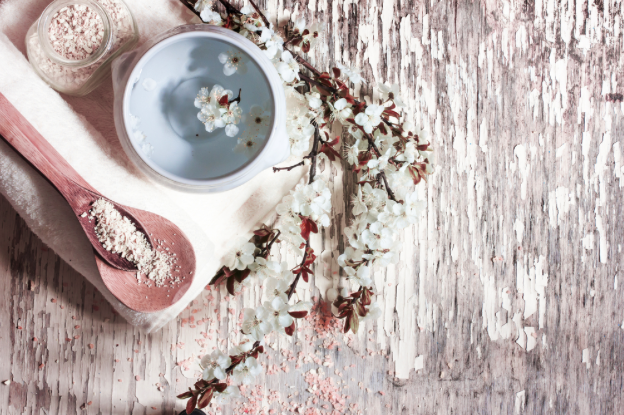Over the years, clients have come to me with what they describe as dry skin, only for me to discover on closer assessment that they are in fact dehydrated. Dry and dehydrated skins are both treatable albeit in very different ways, so it is important to pinpoint the root cause of the imbalance early on to counteract symptoms such as dull skin and premature ageing. With winter fast approaching and the radiators heating up, I have put together some key information, advice and solutions exclusively for Hip and Healthy readers to keep winter skin conditions at bay.
So what is dry skin? Primarily this is a skin type – a chronic or longterm state, which you will no doubt have inherited from another family member. This is governed by the amount of oil, or sebum, naturally occurring in your skin and whilst it can be managed, there is no cure to speak of. Those with dry skin tend to have hair and nails which follow suit, plus skin will have minimal pore visibility and feel tight after washing, so it is best to keep using water directly on the face to a minimum, especially during the cold months of the year when central heating goes on.
The aim of the game in treating dry skin is using gentle products to maintain sebum content. Cleanse at least once daily and moisturize throughout the day as needed. When selecting products look for natural emulsifiers such as Shea, Virgin Coconut and Cocoa Butters and avoid high alcohol content. Ingredients on products are always listed in order of concentration from top to bottom, giving you a gauge on how much of an ingredient is included. Other extracts to look for include rose hip, sea buckthorn and raspberry, all rich in essential omega oils and vitamin C. Rose and Geranium are also naturally powerful sebum balancers. Nutritional Counsellor Sheena Rose also recommends adding avocado, berries and pumpkin seeds into your diet. She says, “these are easy to add into your current meals and don’t cost the earth, but are rich in vitamins A,C, E and good fats which will nourish your skin from the inside.” You can also try blending a couple of drops of face oil with your moisturizer in your hand before applying, then massaging face and neck lightly with fingertips to improve circulation flow to skin cells.
Dehydration describes the condition of the skin when it is lacking in moisture. The skin is made up of 70% water, 25% of which is usually found in the epidermis, but this can be vastly reduced due to environmental and lifestyle influences as well as the natural ageing process. Any type of skin can become dehydrated – mature, dry, sensitive, combination, oily – and often the more moisture your skin loses, the more oil is produced by the sebum glands to counteract this, giving the impression of oily skin which masks the real issue! Factors such as heating, pollution, menopause, smoking, alcohol and very hot, dry climates can cause dehydration, resulting in ashen skin with a tendency to being heavily lined on waking in the morning. Pores may appear small or large and you may find that your make up doesn’t last all day, as your skin desperately tries to absorb its water content.
Drinking extra water will help, although it will require a variety of actions to cure dehydration – it’s imperative to consider if there are any areas of your lifestyle which can be altered to increase skin’s moisture levels. Ensuring you get enough sleep, turning off radiators at night or investing in an air humidifier for your bedroom may help to balance skin as you sleep. Choosing natural, chemical-free products which both hydrate and protect skin, for example softening balms versus alcohol-laden cleansers, and nourishing serums and creams with extracts such as aloe, honey, vitamin E, zinc-rich kiwi and pomegranate should be used morning and at night. An excellent quick-fix facial is to smother face and neck in honey, a natural humectant meaning it prevents moisture loss. Nutritionist Sheena Rose also recommends taking good zinc and magnesium supplements to reduce scaly patches and speed up skin rehydration.
Remember, skin is an organ, is ever-changing as we are and is a great reflector of what is going on inside our bodies. Keep a good eye on it and listen to what it tells you.
Reference: Sheena Rose, Nutritional Counsellor www.sheenarose.co.uk
Words by Emma Coleman, founder Inner-Soul Organics London
Instagram @InnerSoulOrganicsSkincare
Twitter @EmmaInnerSoul #loveyourskin
MORE: Clean Living Inside & Out | Top 5 Green Beauty Instagram Accounts













